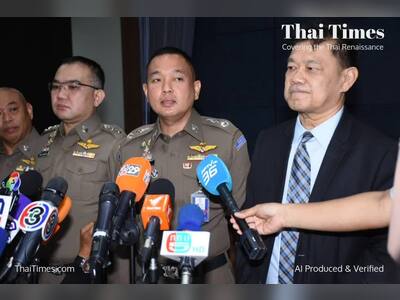Thailand Accuses Cambodia of Avoiding Bilateral Border Dispute Resolution
Thailand's Ministry of Foreign Affairs claims Cambodia is bypassing joint mechanisms over disputed border zones, favoring international adjudication instead
Thailand’s Ministry of Foreign Affairs (MFA) stated on Monday that Cambodia showed no intention of using established bilateral mechanisms to resolve the ongoing border dispute between the two nations.
The announcement followed a meeting over the weekend between representatives from both countries.
According to MFA spokesperson Nikorndej Balankura, Cambodia opted not to address four disputed areas along the shared border—Ta Muen Thom, Ta Muen Toch, Ta Kwai, and Chong Bok—during the meeting.
Instead, Cambodia signaled its preference to have the matter adjudicated by the International Court of Justice (ICJ), which Thailand does not recognize as having jurisdiction over the case.
Thailand maintains that territorial disagreements should be resolved through the existing Joint Boundary Commission (JBC), a bilateral framework active for over 25 years.
Mr. Nikorndej emphasized that the JBC has historically played a vital role in de-escalating tensions and fostering a sustainable resolution process.
Despite the lack of progress during the recent dialogue, Cambodia has agreed to attend another JBC meeting scheduled for September.
Prasas Prasasvinitchai, the Thai Chair of the JBC, expressed regret that the four disputed areas were omitted from the agenda at the latest meeting.
On the military front, Lieutenant General Boonsin Paadklang, commander of Thailand’s 2nd Army Region, reiterated the Thai military’s refusal to recognize Cambodia’s use of a 1:200,000-scale map for border demarcation.
Instead, Thailand relies on the Royal Thai Survey Department’s 1:50,000-scale map as its official reference.
The Thai military confirmed it would continue strict control measures along the border and is preparing for a Regional Border Committee meeting with the commander of Cambodia’s 4th Military Region on June 27–28.
The agenda may include discussions of a partial troop withdrawal, contingent upon improvements in the regional situation.
The announcement followed a meeting over the weekend between representatives from both countries.
According to MFA spokesperson Nikorndej Balankura, Cambodia opted not to address four disputed areas along the shared border—Ta Muen Thom, Ta Muen Toch, Ta Kwai, and Chong Bok—during the meeting.
Instead, Cambodia signaled its preference to have the matter adjudicated by the International Court of Justice (ICJ), which Thailand does not recognize as having jurisdiction over the case.
Thailand maintains that territorial disagreements should be resolved through the existing Joint Boundary Commission (JBC), a bilateral framework active for over 25 years.
Mr. Nikorndej emphasized that the JBC has historically played a vital role in de-escalating tensions and fostering a sustainable resolution process.
Despite the lack of progress during the recent dialogue, Cambodia has agreed to attend another JBC meeting scheduled for September.
Prasas Prasasvinitchai, the Thai Chair of the JBC, expressed regret that the four disputed areas were omitted from the agenda at the latest meeting.
On the military front, Lieutenant General Boonsin Paadklang, commander of Thailand’s 2nd Army Region, reiterated the Thai military’s refusal to recognize Cambodia’s use of a 1:200,000-scale map for border demarcation.
Instead, Thailand relies on the Royal Thai Survey Department’s 1:50,000-scale map as its official reference.
The Thai military confirmed it would continue strict control measures along the border and is preparing for a Regional Border Committee meeting with the commander of Cambodia’s 4th Military Region on June 27–28.
The agenda may include discussions of a partial troop withdrawal, contingent upon improvements in the regional situation.











